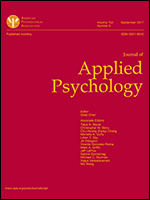We develop competing hypotheses about the relationship between high performance work systems (HPWS) with employee and customer satisfaction. Drawing on 8 years of employee and customer survey data from a financial services firm, we used a recently developed empirical technique—covariate balanced propensity score (CBPS) weighting—to examine if the proposed relationships between HPWS and satisfaction outcomes can be explained by reverse causality, selection effects, or commonly omitted variables such as leadership behavior. The results provide support for leader behaviors as a primary driver of customer satisfaction, rather than HPWS, and also suggest that the problem of reverse causality requires additional attention in future human resource (HR) systems research. Model comparisons suggest that the estimates and conclusions vary across CBPS, meta-analytic, cross-sectional, and time-lagged models (with and without a lagged dependent variable as a control). We highlight the theoretical and methodological implications of the findings for HR systems research. (PsycINFO Database Record (c) 2018 APA, all rights reserved)
Publication Type
- Article



